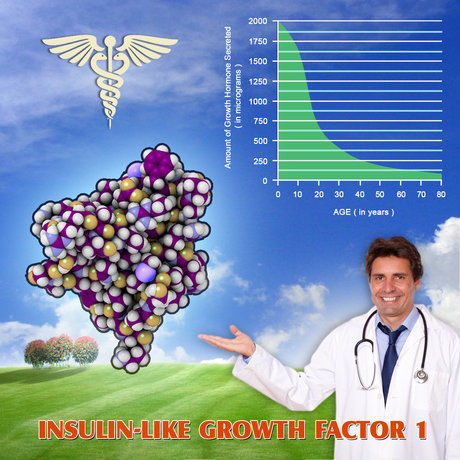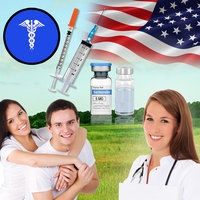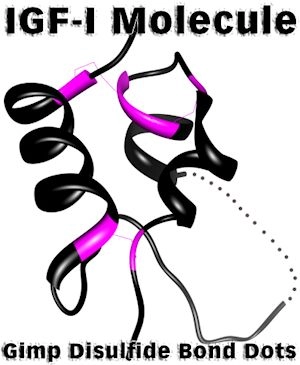Introduction
The phenomenon of andropause, often referred to as male menopause, is a subject of increasing interest within the medical community. As men age, testosterone levels gradually decline, potentially leading to a variety of symptoms and health concerns. Concurrently, the prevalence of autoimmune diseases, where the body's immune system mistakenly attacks its own tissues, is on the rise. This article explores the longitudinal relationship between andropause and autoimmune diseases in American males, shedding light on the intricate interplay between hormonal fluctuations and immune system disorders.
Understanding Andropause
Andropause, characterized by a decline in testosterone levels, typically begins in men around the age of 40 to 55. Symptoms may include fatigue, decreased libido, mood swings, and reduced muscle mass. While not all men experience noticeable effects, the impact on overall health can be significant. The decline in testosterone is gradual, contrasting with the more abrupt hormonal changes seen in female menopause, yet it remains a critical factor in male aging and health.
The Rise of Autoimmune Diseases
Autoimmune diseases, such as rheumatoid arthritis, type 1 diabetes, and multiple sclerosis, have been increasing in incidence over recent decades. These conditions arise when the immune system fails to distinguish between self and non-self, leading to chronic inflammation and tissue damage. The reasons behind this rise are multifaceted, including genetic predispositions and environmental factors, but hormonal influences are increasingly recognized as significant contributors.
Linking Andropause to Autoimmune Diseases
Recent longitudinal studies have begun to uncover a potential link between andropause and the onset or exacerbation of autoimmune diseases in American males. Research indicates that testosterone, beyond its role in sexual health, has immunomodulatory effects. It can influence the function of immune cells, potentially acting as a protective factor against autoimmune responses. As testosterone levels decline during andropause, this protective effect may diminish, increasing susceptibility to autoimmune conditions.
Clinical Observations and Data
A study conducted over a decade followed a cohort of American males aged 40 to 70, monitoring their testosterone levels and the incidence of autoimmune diseases. The findings revealed a notable correlation: men with lower testosterone levels were more likely to develop autoimmune disorders. Specifically, those in the lowest quartile of testosterone levels had a 30% higher risk of developing rheumatoid arthritis compared to those in the highest quartile.
Mechanisms of Hormonal Influence
The mechanisms through which testosterone influences autoimmune diseases are complex. Testosterone can modulate the activity of T-cells and B-cells, key players in the immune response. Lower levels of testosterone may lead to an imbalance in these cells, promoting an environment conducive to autoimmune reactions. Additionally, testosterone has anti-inflammatory properties, and its decline may contribute to increased inflammation, a hallmark of autoimmune diseases.
Implications for Treatment and Prevention
Understanding the relationship between andropause and autoimmune diseases opens new avenues for treatment and prevention. Hormone replacement therapy (HRT) could potentially mitigate the risk of autoimmune diseases in men experiencing significant testosterone decline. However, the use of HRT must be carefully considered, weighing its benefits against potential risks such as cardiovascular issues and prostate health.
Future Research Directions
Further research is needed to solidify the link between andropause and autoimmune diseases and to explore the efficacy and safety of HRT in this context. Longitudinal studies with larger cohorts and more diverse populations will be crucial. Additionally, investigating the role of other hormones, such as estrogen and cortisol, which also fluctuate with age, could provide a more comprehensive understanding of the hormonal-immune interplay.
Conclusion
The relationship between andropause and autoimmune diseases in American males is a burgeoning field of study with significant implications for health and treatment strategies. As we continue to unravel the complex interactions between hormonal changes and immune system function, we move closer to developing targeted interventions that can improve the quality of life for aging men. The journey to understanding this nexus is ongoing, but the potential to enhance health outcomes is promising.
Contact Us For A Fast And Professional Response

- Andropause: Understanding Male Menopause and Its Impact on American Men's Health [Last Updated On: February 18th, 2025] [Originally Added On: February 18th, 2025]
- Managing Andropause: Key Supplements and Personalized Approaches for American Men [Last Updated On: March 17th, 2025] [Originally Added On: March 17th, 2025]
- Andropause: Dispelling Myths and Understanding Realities for American Males [Last Updated On: March 18th, 2025] [Originally Added On: March 18th, 2025]
- Managing Andropause: Diet, Exercise, Stress, Sleep, and Health Check-ups for American Men [Last Updated On: March 18th, 2025] [Originally Added On: March 18th, 2025]
- Andropause: Understanding Male Menopause and Embracing Life's New Chapter [Last Updated On: March 18th, 2025] [Originally Added On: March 18th, 2025]
- Andropause and Cognitive Health: Strategies for American Men [Last Updated On: March 19th, 2025] [Originally Added On: March 19th, 2025]
- Understanding Andropause: Symptoms, Diagnosis, and Management Strategies for Men [Last Updated On: March 20th, 2025] [Originally Added On: March 20th, 2025]
- Navigating Emotional Challenges of Andropause: Support and Strategies for American Men [Last Updated On: March 20th, 2025] [Originally Added On: March 20th, 2025]
- Managing Andropause: Importance of Regular Check-ups for American Men's Health [Last Updated On: March 20th, 2025] [Originally Added On: March 20th, 2025]
- Andropause and Prostate Health: Understanding the Link for Aging American Males [Last Updated On: March 20th, 2025] [Originally Added On: March 20th, 2025]
- Andropause and Diabetes: Understanding Risks and Management Strategies for American Males [Last Updated On: March 21st, 2025] [Originally Added On: March 21st, 2025]
- Andropause: Navigating Social Impacts and Seeking Support in American Men [Last Updated On: March 21st, 2025] [Originally Added On: March 21st, 2025]
- Andropause in American Males: Strategies for Maintaining Muscle Mass and Strength [Last Updated On: March 22nd, 2025] [Originally Added On: March 22nd, 2025]
- Andropause: Understanding Symptoms, Impact on Self-Esteem, and Treatment Options for American Men [Last Updated On: March 22nd, 2025] [Originally Added On: March 22nd, 2025]
- Andropause and Depression: Recognizing Signs and Seeking Treatment in American Men [Last Updated On: March 23rd, 2025] [Originally Added On: March 23rd, 2025]
- Andropause Effects on Skin: Skincare Strategies for American Men [Last Updated On: March 23rd, 2025] [Originally Added On: March 23rd, 2025]
- Navigating Andropause: Building Support Networks for American Men's Health [Last Updated On: March 24th, 2025] [Originally Added On: March 24th, 2025]
- Andropause: Navigating Psychological Impacts with Mental Health Support in American Men [Last Updated On: March 24th, 2025] [Originally Added On: March 24th, 2025]
- Andropause: Understanding and Managing Male Menopause in American Men [Last Updated On: March 24th, 2025] [Originally Added On: March 24th, 2025]
- Managing Andropause: Strategies to Combat Fatigue and Enhance Life Quality [Last Updated On: March 24th, 2025] [Originally Added On: March 24th, 2025]
- Mindfulness: A Holistic Approach to Managing Andropause in American Men [Last Updated On: March 24th, 2025] [Originally Added On: March 24th, 2025]
- Andropause: Family Support Crucial for Managing Male Menopause Symptoms [Last Updated On: March 24th, 2025] [Originally Added On: March 24th, 2025]
- Andropause and Hair Loss: Understanding Impacts and Exploring Treatment Options [Last Updated On: March 24th, 2025] [Originally Added On: March 24th, 2025]
- Andropause: Managing Symptoms to Balance Work and Health in American Men [Last Updated On: March 24th, 2025] [Originally Added On: March 24th, 2025]
- Andropause and Immune Health: Strategies for American Men to Boost Immunity [Last Updated On: March 25th, 2025] [Originally Added On: March 25th, 2025]
- Andropause and Cholesterol: Managing Health in Aging American Males [Last Updated On: March 25th, 2025] [Originally Added On: March 25th, 2025]
- Essential Foods for Managing Andropause: A Guide for American Males [Last Updated On: March 25th, 2025] [Originally Added On: March 25th, 2025]
- Andropause Impact on Vision: Proactive Care for Aging American Males [Last Updated On: March 25th, 2025] [Originally Added On: March 25th, 2025]
- Andropause and Kidney Health: Understanding Impacts and Management Strategies for American Men [Last Updated On: March 25th, 2025] [Originally Added On: March 25th, 2025]
- Navigating Andropause: Emotional Challenges and Strategies for American Men [Last Updated On: March 26th, 2025] [Originally Added On: March 26th, 2025]
- Managing Andropause: Stress Reduction Strategies for American Men's Health [Last Updated On: March 26th, 2025] [Originally Added On: March 26th, 2025]
- Andropause and HRT: Benefits, Risks, and Management for American Men [Last Updated On: March 26th, 2025] [Originally Added On: March 26th, 2025]
- Andropause and Respiratory Health: Strategies for American Males [Last Updated On: March 26th, 2025] [Originally Added On: March 26th, 2025]
- Andropause and Joint Health: Symptoms and Management Strategies for American Men [Last Updated On: March 26th, 2025] [Originally Added On: March 26th, 2025]
- Andropause Management: Benefits of Regular Exercise for American Men's Health [Last Updated On: March 26th, 2025] [Originally Added On: March 26th, 2025]
- Andropause in American Men: Symptoms, Diagnosis, and Management Strategies [Last Updated On: March 26th, 2025] [Originally Added On: March 26th, 2025]
- Andropause and Memory: Strategies for American Males to Enhance Cognitive Health [Last Updated On: March 27th, 2025] [Originally Added On: March 27th, 2025]
- Hydration's Crucial Role in Managing Andropause Symptoms in American Men [Last Updated On: March 27th, 2025] [Originally Added On: March 27th, 2025]
- Andropause and Sleep: Managing Symptoms Through Better Sleep Hygiene in American Men [Last Updated On: March 27th, 2025] [Originally Added On: March 27th, 2025]
- Andropause in American Men: Importance of Tailored Screenings and Holistic Management [Last Updated On: March 27th, 2025] [Originally Added On: March 27th, 2025]
- Andropause and Digestive Health: Strategies for American Males [Last Updated On: March 27th, 2025] [Originally Added On: March 27th, 2025]
- Andropause and Dental Health: Risks and Strategies for American Males [Last Updated On: March 27th, 2025] [Originally Added On: March 27th, 2025]
- Andropause: Understanding Male Menopause and Its Impact on Energy Levels in American Men [Last Updated On: March 27th, 2025] [Originally Added On: March 27th, 2025]
- Andropause and Thyroid Function: Interplay and Clinical Implications for American Men [Last Updated On: March 27th, 2025] [Originally Added On: March 27th, 2025]
- Andropause and Blood Pressure: Monitoring Strategies for American Males [Last Updated On: March 27th, 2025] [Originally Added On: March 27th, 2025]
- Andropause and Hearing Loss: Understanding the Link in American Males [Last Updated On: March 28th, 2025] [Originally Added On: March 28th, 2025]
- Andropause: Managing Psychological Impact with Mental Health Days for American Males [Last Updated On: March 28th, 2025] [Originally Added On: March 28th, 2025]
- Andropause and Liver Health: Managing Hormonal Changes in American Males [Last Updated On: March 28th, 2025] [Originally Added On: March 28th, 2025]
- Andropause: Understanding Its Impact on Men's Motivation and Well-being [Last Updated On: March 28th, 2025] [Originally Added On: March 28th, 2025]
- Andropause: Navigating Male Menopause and Maintaining Confidence in American Men [Last Updated On: March 29th, 2025] [Originally Added On: March 29th, 2025]
- Andropause: Community Support Enhances Men's Health and Well-being in America [Last Updated On: March 29th, 2025] [Originally Added On: March 29th, 2025]
- Andropause and Emotional Intelligence: Enhancing Men's Emotional Health in America [Last Updated On: March 31st, 2025] [Originally Added On: March 31st, 2025]
- Hobbies: A Holistic Approach to Managing Andropause in American Men [Last Updated On: April 1st, 2025] [Originally Added On: April 1st, 2025]
- Andropause: Navigating Male Menopause with Goal Setting and Support [Last Updated On: April 2nd, 2025] [Originally Added On: April 2nd, 2025]
- Andropause in American Men: Impacts on Creativity and Strategies for Mitigation [Last Updated On: April 2nd, 2025] [Originally Added On: April 2nd, 2025]
- Andropause and Allergies: Managing Dual Health Challenges in American Males [Last Updated On: April 3rd, 2025] [Originally Added On: April 3rd, 2025]
- Andropause: Understanding Its Impact on American Men's Sense of Purpose and Identity [Last Updated On: April 7th, 2025] [Originally Added On: April 7th, 2025]
- Andropause and Time Management: Strategies for American Men's Health and Productivity [Last Updated On: April 8th, 2025] [Originally Added On: April 8th, 2025]
- Andropause and Skin Sensitivity: Causes, Symptoms, and Management Strategies for American Males [Last Updated On: April 8th, 2025] [Originally Added On: April 8th, 2025]
- Technology's Role in Managing Andropause for American Men: Telemedicine, Wearables, AI [Last Updated On: April 9th, 2025] [Originally Added On: April 9th, 2025]
- Andropause Effects on Nail Health: Nutrition, Hydration, and Care Strategies for American Males [Last Updated On: April 9th, 2025] [Originally Added On: April 9th, 2025]
- Andropause and Foot Health: Tips for American Males [Last Updated On: April 9th, 2025] [Originally Added On: April 9th, 2025]
- Andropause Effects on Hand Health: Strategies for American Males [Last Updated On: April 10th, 2025] [Originally Added On: April 10th, 2025]
- Andropause: Enhancing Life Quality Through Lifelong Learning for American Men [Last Updated On: April 10th, 2025] [Originally Added On: April 10th, 2025]
- Andropause Impact on Eye Health: Risks, Prevention, and Care for American Males [Last Updated On: April 10th, 2025] [Originally Added On: April 10th, 2025]
- Volunteering: A Holistic Approach to Managing Andropause in American Men [Last Updated On: April 11th, 2025] [Originally Added On: April 11th, 2025]
- Travel as Therapy: Managing Andropause in American Men [Last Updated On: April 11th, 2025] [Originally Added On: April 11th, 2025]
- Andropause: Managing Declining Testosterone and Preserving Adventure in American Men [Last Updated On: April 13th, 2025] [Originally Added On: April 13th, 2025]
- Andropause: Financial Planning Strategies for American Men's Health and Well-being [Last Updated On: April 16th, 2025] [Originally Added On: April 16th, 2025]
- Andropause: Navigating Male Menopause and Redefining Identity in American Men [Last Updated On: April 16th, 2025] [Originally Added On: April 16th, 2025]
- Andropause Impact on Throat Health: Symptoms, Management, and Prevention Strategies for American Males [Last Updated On: April 17th, 2025] [Originally Added On: April 17th, 2025]
- Music Therapy: A Holistic Approach to Managing Andropause in American Men [Last Updated On: April 18th, 2025] [Originally Added On: April 18th, 2025]
- Andropause Impact on Men's Humor and Psychological Well-being [Last Updated On: April 18th, 2025] [Originally Added On: April 18th, 2025]
- Andropause Effects on Nasal Health in American Men: Symptoms and Management Strategies [Last Updated On: April 19th, 2025] [Originally Added On: April 19th, 2025]
- Andropause Impact on Tongue Health: Symptoms and Management for American Males [Last Updated On: April 19th, 2025] [Originally Added On: April 19th, 2025]
- Andropause and Ear Health: Understanding Impacts and Managing Hearing Loss in American Males [Last Updated On: April 19th, 2025] [Originally Added On: April 19th, 2025]
- Art Therapy's Role in Managing Andropause Symptoms in American Men [Last Updated On: April 19th, 2025] [Originally Added On: April 19th, 2025]
- Andropause: Navigating Male Menopause with Social Support and Professional Help [Last Updated On: April 20th, 2025] [Originally Added On: April 20th, 2025]
- Understanding Andropause: Symptoms, Diagnosis, and Treatment for American Males [Last Updated On: April 21st, 2025] [Originally Added On: April 21st, 2025]
- Andropause in American Men: Understanding Mental Health Impacts and Seeking Support [Last Updated On: April 22nd, 2025] [Originally Added On: April 22nd, 2025]
















